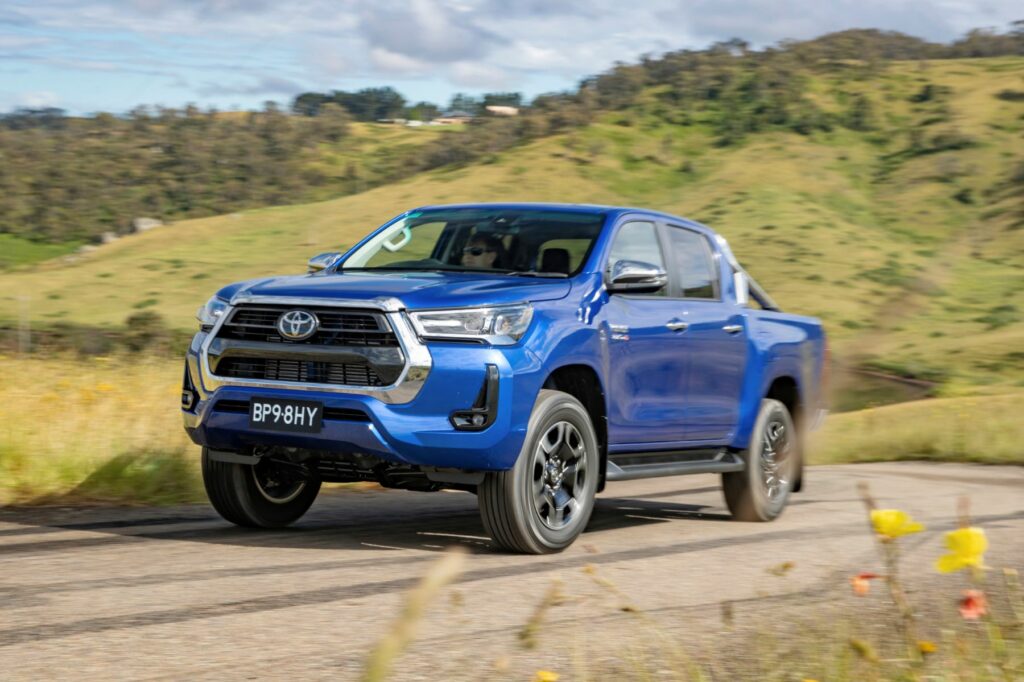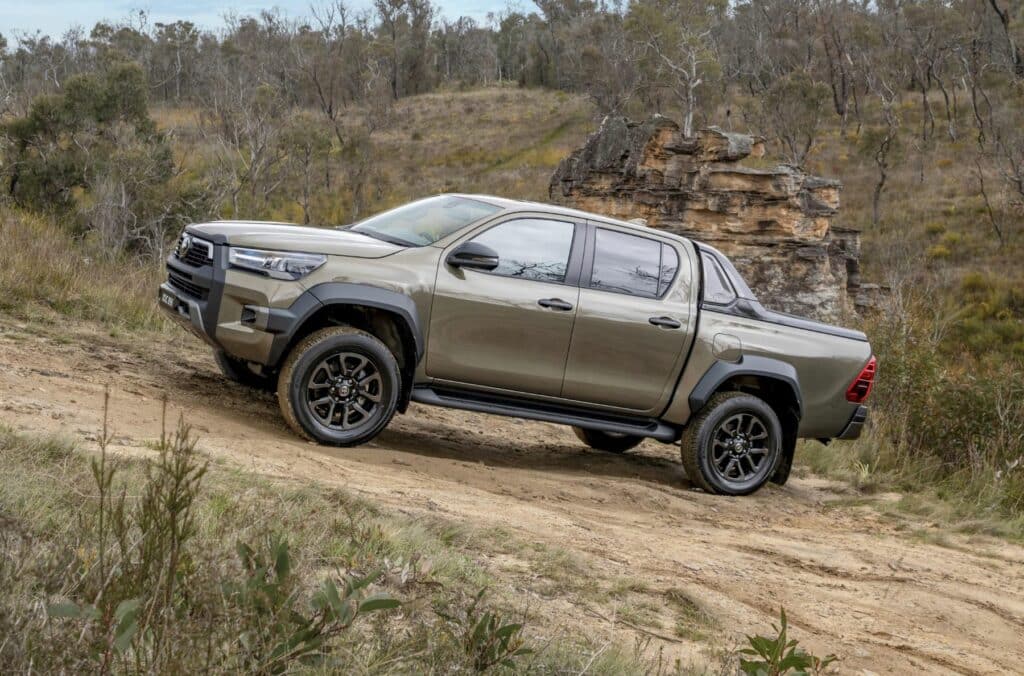What the? HiLux goes hybrid?!




With a new 48V system onboard, what’s the go with the 2024 HiLux?
Toyota Australia announced recently that the 2024 HiLux models will come with a 48V Technology mild hybrid system that’ll work in conjunction with the existing 2.8L four-cylinder turbo-diesel platform and deliver no appreciable loss in power or towing capability and gain drivers an extra 10% in the fuel-economy stakes.
“Ok, that sounds pretty good,” I hear you saying, “but isn’t it just something else to go wrong?”
Short answer is: “Sort of…” slightly longer answer is “…but not really.”
Before we jump into the grittiest of the nitty, however, let’s do a quick refresher on just what the heck a ‘mild hybrid’ is. Basically, electric vehicles (EVs) only have electric motors (think Tesla) – they don’t burn fuel (at least not directly).
A hybrid electric vehicle (HEV) has both an electric motor and an internal combustion engine (think Prius) and can run on either. A mild hybrid (MHEV) has both an electric motor and an internal combustion engine, but cannot run exclusively on electric power. Usually, they can only run on electrickery under specific circumstances, but the electrical side of things is more there as a support.
Clear as Guinness? Cool, back to the HiLux and it’s 48V tech.

The Toyota HiLux 48V Technology utilises a 48V (duh) battery and motor generator. It will come as standard on the 4X4 SR5 and Rogue dual-cabs and as an option on the SR double-cab models. Toyota has also included an auto start-stop feature that’s only a couple of generations behind Ford, VW and several others, which is about usual for a HiLux, really.
Anyway, given that there are currently scant details on what role the electric motor will play in the driveability of the Lux, we can only speculate on how it’ll impact the driving and towing experience. However, there are a couple of things to have a think about in the meantime.
First, the reliability concern of wacking 48V in a HiLux is probably not much of a concern at all really. Toyota has been working with electric motors for a long time now, and they have the technology pretty well dialled in. They have numerous hybrid vehicles for sale and have no real red flags raised on the reliability front, so we reckon it’ll mainly be a case of forgetting about it and enjoying the fuel economy savings.
Second, the elephant in the room for us is whether payload and GVM have been affected. Chevrolet flirted with a mild hybrid Silverado in the States in the 2000s, and while the system itself was reliable, a great many owners complained that the weight of the battery and motor reduced the overall payload capacity too much, so they ditched it as an option. However, they obviously see merit in the technology as they brought it back a few years later to offer mild hybrids as an option.
So Toyota are not exactly alone in the endeavour, and it’s highly unlikely they’d risk the HiLux brand popularity on an unproven or ineffective 48V system.

At the end of the day, the technology is pretty amazing, and in a country like ours with hundreds of kilometres between servos, hybrid technology (as opposed to full EV) is still the way to go, at least for now. Fuel economy is fast becoming one of the most important aspects in the new-vehicle market, but it does not completely mitigate the importance of power and payload/towing capacities.
For RVers, being able to pull our trailers comfortably is still paramount. The 2024 HiLux still has a 3500kg towing capacity which is fantastic to see, but the question marks remain over the GVM and payload with the addition of 48V. Hopefully, Toyota have got it sorted, because the tech has huge potential advantages to those who tow. We’re excited to see what happens.